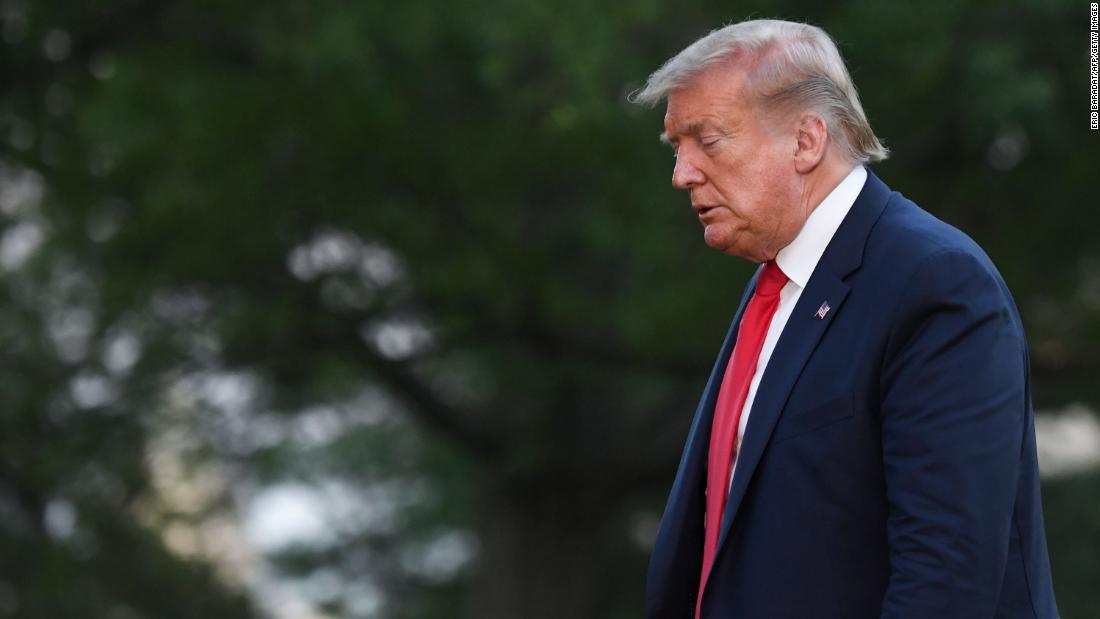
Sensing a moment of national reckoning, some major corporations, company managers, major sports leagues and white politicians have felt compelled to speak out.
and when the black community is talking about their pain, we all need to listen," Brees said.
There is a notable absentee from this broadening debate: Trump.
While he has condemned Floyd's death and promised justice several times, the President, who has a history of flinging racist rhetoric, is not examining his own prejudices.
Instead, Trump has amplified accusations that former President Barack Obama inflamed racial angst, boasted that he's done more for African Americans than any President but Abraham Lincoln, had federal forces charge peaceful protesters so he could have a divisive photo-op and threatened to send troops into the states.
Trump defended heavy handed action by federal security forces in Washington, DC, on Thursday, doubling down on the tough guy persona that he hopes will reverse his current polling deficit to Democrat Joe Biden in the presidential election race.
"The problem is not the very talented low-flying helicopter pilots wanting to save our city, the problem is the arsonists, looters, criminals, and anarchists, wanting to destroy it (and our Country)!" Trump tweeted.
And then, later on Thursday, Trump shared a letter on Twitter that referred to the peaceful protesters who were forcibly dispersed from a park near the White House as "terrorists."
The President no doubt believes he is on solid ground in reflecting the sentiments of his base supporters with his hard line.
Conservative media is already creating a narrative that reflections on race are liberal virtue signaling and political correctness run wild and that protests represent lawlessness by radicals and are not genuine political uprisings.
Still, that the President would not want to be part of a growing national appraisal of America's racial wounds and the injustices black Americans face now, or feel a responsibility to lead it in a moment of deep crisis, is a reflection on his character -- and the manner in which he has conducted his administration and campaigns, which have tended to open historic wounds.
The power of the moment -- even as the country is battling a pandemic and consequent economic devastation -- leaves open the possibility that Trump has misjudged the public mood.
'A lot of motion but very little action'
There have been many failed "conversations about race" in US politics.
Black families still have less wealth than white families, black Americans still aren't well represented at the upper-levels of management and are more likely to die from coronavirus and to have poor health care.
There at least appears to be some hope that more white Americans than ever before are taking the time to examine the cultural biases that they did not believe they bore.
Similarly there appears to be a willingness to more carefully listen to the agonies of black Americans.
She had previously lashed out at basketball star LeBron James, who is black, after he criticized Trump and told him to "shut up and dribble."
Despite such divisive rhetoric, civil rights icon and Democratic Rep.
